Cuttlefish is a mollusk which belongs to the class Cephalopoda and order Sepiida. There are five different genera with 120 different identified species. It is a marine animal and can be found widely in most parts of the world oceans. The organism possesses several distinguishing traits which make it an intriguing creature. For instance, its ability to camouflage itself, flashing colors during mating, the ability to see backward and spurting ink to escape predators are characteristics which make cuttlefish one of the most interesting aquatic creatures.
More cuttlefish facts are discussed below.
Physical Traits
Cuttlefish are small sized organisms which range from 5.9 to 20 inches in size. Their weight varies from 6.6 to 23 pounds on average. They exist in a wide variety of colors including pink, green, red, brown, orange, white and yellow. The organism’s body is flat and broad with an oval cross-section. The cuttlefish possesses a fin which runs around the entire body.
Different distinguishing physical traits of the animal are described below.
Cuttlebone
Suckers
Head and Eyes
One of the identifying traits of a cuttlefish is its cuttlebone. It is an internal structure which is hard and brittle. It is shaped like a shell and is porous. The shell is filled with gas. The purpose of the cuttlebone is to provide buoyancy to cuttlefish by altering the ratio between gas and liquid. The feature is unique to the cuttlefish and distinguishes it from its squid relatives.
Suckers, also referred to as tentacles, arms or legs are appendages found in Cephalopods. These limbs are flexible and extend from the head of the organism, encircling its mouth. There are 10 limbs in total – eight suckers surrounding the mouth and two tentacles can be elongated by the organism at will. The suckers and tentacles help the cuttlefish in locomotion as well as for catching and manipulating prey.
The head of the cuttlefish is well-developed and bears the animal’s mouth as well as its eyes. The eyes are large and sophisticated in structure and function. Their pupils are W-shaped. Fovea, which are sensor cells, are present on the retina at two different spots. The first spot enables the cuttlefish to look in the forward direction while the other one gives it the ability to see backwards. The organism can also sense the polarization of light which helps it determine contrast. However, cuttlefish are color blind organisms.
Cuttlefish Camouflage
Cuttlefish is one of the organisms with exceptional camouflaging ability. Although it cannot see color, the organism can change the color of its body according to its surroundings. In fact, it is so good at doing so that it can even become invisible while lying at the bottom of the ocean floor. This ability helps the cuttlefish in hiding from predators as well as for catching its prey off-guard.
This ability of the organism is so well-developed that it can perform perfect camouflage even in darkness. It evaluates its surroundings and brings changes to its skin according to the color, contrast as well as the substrate texture. Other than color changes, chromatically complex patterns can be created by the organism in order to achieve flawless camouflage.
Habitat
Cuttlefish belongs to a wide range of habitats. Various species thrive in warm, tropical waters as well as in cold parts of oceans. In addition, they are found in both shallow as well as deep waters. Although most species are found in shallow regions of oceans, some are also found at depths of 2,000 feet.
Cuttlefish are found in most parts of the world except the American continent as well as the extremely cold and deep waters of the Atlantic. On the other hand, eastern and southern coast of Asia abounds in cuttlefish and so does Western Europe, the Mediterranean and the coasts of Australia as well as Africa.
Diet
Cuttlefish are carnivores. They feed on small organisms found in the ocean. Baby cuttlefish mostly feed on small shrimp. On the other hand, the preferred diet of grown up cuttlefish generally consists of crabs and small fish. They use their ability to camouflage in order to catch prey. In addition, its set of two tentacles helps in grabbing the prey while the other six suckers help the organism in ingesting the food. The saliva of the organism contains neurotoxins which paralyze the prey before being eaten.
Mating and Reproduction
The male cuttlefish changes the color of its skin in order to attract its female counterparts for the purpose of mating. The female lays two hundred eggs at a time. The lifespan of the female comes to an end soon after it lays eggs.
Male dominance plays an important part in the organism’s mating behavior. Competition exists among the males and usually the larger rival wins as the smaller back away after being threatened.
Interesting Facts
Here are some intriguing facts about cuttlefish.
- Despite its name, cuttlefish is not categorized as a fish. Instead, it belongs to the group of mollusks.
- Being a member of the order Sepiida, the cuttlefish is related to octopodes, nautiluses and squid which belong to the same order.
- Among invertebrates, cuttlefish is the most intelligent organism with a large ratio of brain to body size.
- The color of its blood is green. This is because of the presence of a compound called hemocyanin which transports oxygen instead of hemoglobin which imparts red color to blood in most other animals.
- The circulatory system of cuttlefish consists of three hearts.
- Flamboyant Cuttlefish is a species of the organism with a toxin in its muscles. Its flesh is, therefore, poisonous for humans and other predators.
- The Australian Giant Cuttlefish is the largest in size among other species of the organism. It grows up to half a meter is with its weight exceeding 10 Kg.
- The eyes of a cuttlefish are completely formed while the organism is still developing inside its egg. It, therefore, has the ability to see long before it hatches out of its egg. Interestingly, the organism’s hunting preferences depend upon the prey it sees before it is born.
- Small crustaceans and fish are the organism’s prey while its natural predators include sharks and other large fish. Often, larger cuttlefish may feed on the smaller cuttlefish.
- The average lifespan of cuttlefish rangesfrom one to three years.
- The cuttlebone of cuttlefish is used as a source of calcium for pet birds and reptiles.
- Owing to their excellent camouflaging ability, cuttlefish are also known as “Chameleons of the Sea”.
- During the mating season, small cuttlefish may disguise themselves as females in order to distract the bigger males and win over the actual females.
Latest Fish
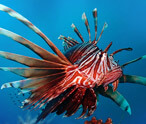
Lionfish Facts
Lionfish is a chordate which belongs to the family...read more
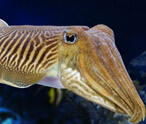
Cuttlefish Facts
Cuttlefish is a mollusk which belongs to the class...read more

Octopus Facts
Do you know how, in the floor of an ocean, an octopus...read more

Sea Urchin Facts
Sea urchins are tiny water creatures found in oceans...read more
Latest Birds
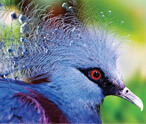
Victoria Crowned Pigeon
With its name...read more
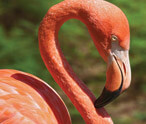
Information About Flamingos
Flamingos are...read more
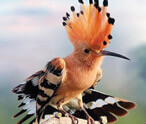
Hoopoe Bird
Famous for its distinctive crown of...read more
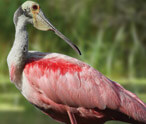
Roseate Spoonbill
The beautiful Roseate Spoonbill...read more























Largest Birds of Prey in the World by Size and Weight
Also called raptors, the birds...
List of Birds That Fly in V Formation
Did you ever feast your eyes on the amazing phenomenon...
Birds of Prey List
A bird of prey is also known as a raptor or a hunter. It belongs to the group of...
Millipedes Vs Centipedes
Centipedes and millipedes are both arthropods from the group...
Difference Between Warm Blooded and Cold Blooded Animals
Every living organism...
Top 10 Extremely Dangerous Insects
The insects have been grouped in class 'insecta' of...
Sheep Vs Goat
The goat and the sheep are related to each other through the same family. They...
Animals with Blue-colored Blood
Humans and other vertebrates have red-colored blood running...
Birds, Mammals And Reptiles
Before coming to the question of common ancestry of birds...